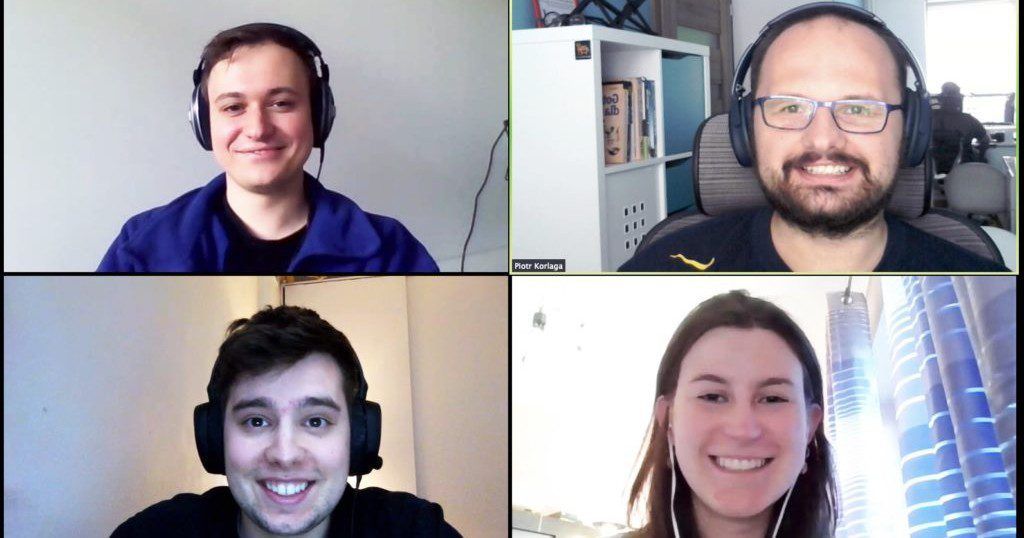
Over 160 volunteers joined forces to help Polish teachers solve problems in remote learning. These are issues related to the English language or the automation of teaching processes. The Geeks4Teachers project was created during one of the hackathons for computer programmers, and it is an entirely grass-roots initiative.
An interview with Piotr Korlaga, who is the creator and organizer of the Geeks4Teachers project.
– How did you come up with the idea of starting the platform?
– It all started during the HackYeah hackathon when we designed a project for the application and the website, which allows people to join us. Although we didn’t win the prize during the event, we decided to continue the project. During the first few days, dozens of people came forward to us. We currently have over 160 people on the mailing list. And the number is still growing.
– What do these people do as part of the project?
– The project is about looking for volunteers who will somehow help teachers with technical issues. Currently, our primary goal is to build a community of people who want to get more involved in our project. Information about the project has started to spread by word of mouth, and some teachers come to us and ask for help.
If I had to sum it up, Geeks4Teachers is a kind of hotline, where everyone can get in contact and receive help.

– How does this project differ from others related to remote learning in Poland?
– We know that there are companies that are already involved in helping. For example, Microsoft provides free tools for remote education, or x-com organized a hotline and has employees who answer teacher questions.
However, after a few conversations with both companies, I understood that there were many other issues demanding help. Some materials are only available in English, so we’re going to translate them. Moreover, some scripts may be too complicated to use by teachers. That is why we can write a simple computer programme that will make the whole process more automatic.
– How are you going to reach the teachers?
– We sent the initial information to the schools, but we didn’t receive any answer. I expected that because the school’s secretary office is an impossible fortress (laugh). We will certainly contact teachers directly to offer our help. Recently, a friend of mine called me because he had a slight problem with the speakers, so I was able to help her. So far, I’ve focused on looking for people who want to get involved in the project. Now it’s time to target teachers.
We also run a campaign in social media, in different newsgroups. Although we are volunteers, we had to spend money on advertising.
– How do you get money for all those activities?
– Well, thanks to the previous hackathons we won. I have a group of about 30 people with whom I work and participate in various events for computer programmers. It is an informal initiative of Polish programmers. We wonder where to get money for further business. We are thinking of establishing a foundation, which will help us reach partners because that’s how we would start running officially. We have been supporting various initiatives for several years. Therefore it will be the next step.
– Since a lot of people come to you, how do you recruit them?
– At this point, we have a natural recruitment method. If someone is more active and wants to get more involved, I speak to that person. Privacy is a fundamental issue, and, as a computer programmer, I am susceptible to that. Of course, when it comes to translating or copywriting, you don’t need to check in detail who that person is. I am just asking for a CV or a telephone conversation, and that is how I am recruiting candidates. In the future, however, we will select people to contact teachers. So far, it was only me to have contacted the teachers, and only I have access to the database.
– What kind of future do you see for this project?
– I want Geek4Teachers to become a project without frontiers. For now, we focus on helping Polish teachers, but in the future, our developers can help around the world. It is remote work, so it does not matter where you are. Computer programmers can often speak English, even if it’s not their native language so that the project can grow on the international level.























